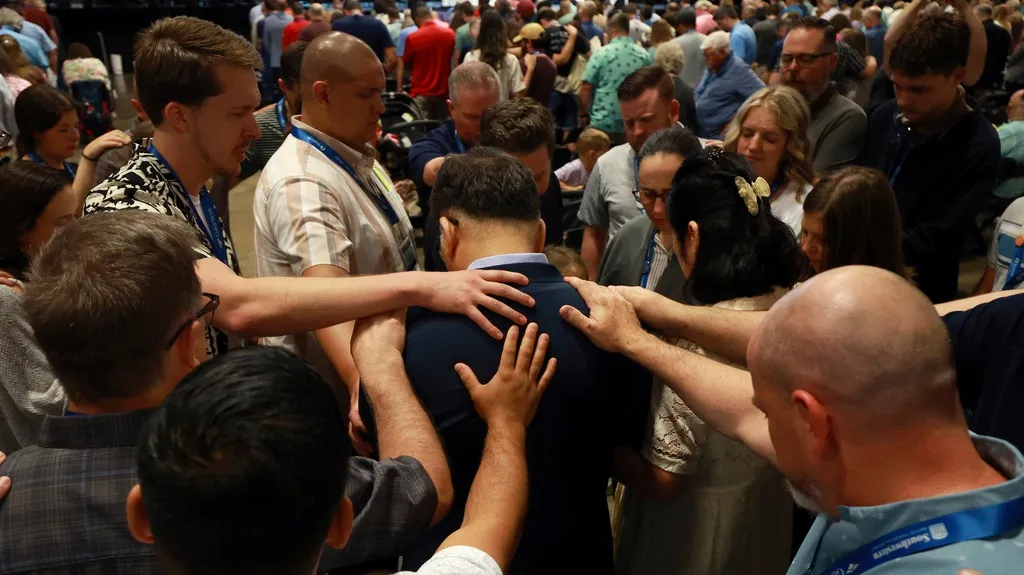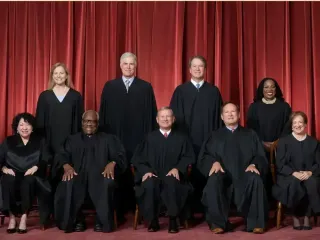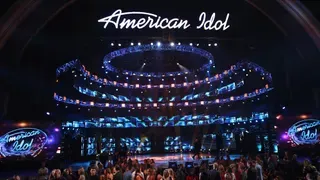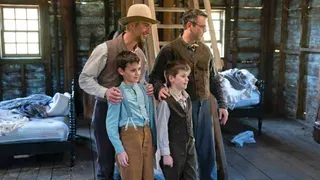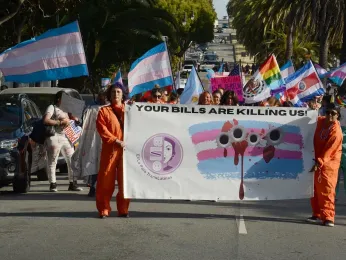
Jun 24
Trans, Dyke marches kick off Pride weekend
John Ferrannini READ TIME: 3 MIN.
The official San Francisco Dyke March is returning after a five year absence this Pink Saturday while the annual Trans March the night before will highlight a community defiantly expressing itself. The Trans March takes on new urgency after last week’s U.S. Supreme Court decision upholding gender-affirming care bans for minors in Tennessee and other states.
An official iteration of the Dyke March hasn’t happened since 2019, according to M Rocket, a dyke who is the interim project director for the revitalized event, which will kick off with on-stage programming at Mission Dolores Park at 11 a.m. Saturday, June 28, before participants begin the march at 5 p.m.
In a phone interview with the Bay Area Reporter, Rocket said that the last members of the march’s former board had stepped down two weeks before Pride 2024. In the time since, community members spent countless hours fundraising and working together for the triumphant return of the event this year.
“I think we’ve come an enormous distance in a really short time,” Rocket said, adding that committees were formed in February before fundraising began in March. “We rallied the community and have been working really hard.”
Helping with the fundraising effort is Pamela Meskin, a lesbian who will be helping carry the banner at the head of the march.
“I’m so excited,” Meskin, now 48, said. “Quite frankly, in my late 20s coming out, I would have never ever imagined. It’s an honor and a privilege.”
After an afternoon of entertainment, music, and speakers, Meskin will be helping to lead the anticipated 20,000-30,000 marchers from the park on 18th Street to Valencia Street, then up to 16th Street, onto Market Street and finally to Castro Street.
The Valencia Street location is significant – the corridor was a cultural center for lesbians and other queer women for decades until gentrification forced many women out.
“This march is about dyke visibility and dyke resistance to the administration,” Rocket said, referring to Republican President Donald Trump. “There used to be more dykes on Valencia and in the Mission [neighborhood] and in San Francisco who have been displaced, the reason why many queers have had to leave the city. The march is taking space and bringing visibility, certainly down Valencia Street.”
Meskin said the march is still fundraising, in particular on Thursday, June 26, from 6 to 10 p.m. with a presence at the regularly-scheduled Moby Dyke night at the Moby Dick bar in the LGBTQ Castro neighborhood, at 4049 18th Street.
“I thought that would be a great way to continue helping,” Meskin said.
People can donate online, where $63,869 has been raised of a $100,000 goal as of June 18.
All dykes welcome
As with previous iterations of the Dyke March, the website states that all dykes are welcome and uses an expansive definition for the word.
“We understand dyke identity to include those of us who are questioning and challenging gender constructs and the social definitions of women: transdyke, MTF, transfeminine, transmasculine, genderqueer, and gender fluid dykes,” according to the website. “We also welcome all women who want to support dykes to march with us. Celebrate dyke diversity!”
The B.A.R. reported in the spring that queer Jews expressed frustration with dyke marches in other cities, such as New York City, for taking a stance against the existence of the State of Israel amid the ongoing war with Hamas and the ethnic cleansing of internationally-recognized Palestinian territory. At the time, Crystal Mason, the interim president of the organizing committee of the San Francisco Dyke March, told the B.A.R. that, “We are against genocide anywhere and everywhere, and we understand the genocide in Palestine is not the only one going on at the moment.”
“I don’t want to say too much because we are in the process of trying to figure out our values – but it is an issue, continues to be an issue, as it should be, and we are not trying to shut down any discussion,” Mason added.
The B.A.R. asked Rocket if there’d been an update. Rocket said that the march agreed on a values statement, which states, in part, “We Dykes are against war, imperialism, and all forms of genocide, including the ongoing U.S.-backed genocide in Palestine. We oppose the use of political, institutional, and military power to oppress marginalized groups of people, including native peoples, Black people and other people of color, immigrants, asylum seekers, people with disabilities, and transgender individuals.”
Rocket continued that, “Everyone is welcome – the stance is we’re against genocide, and you can read the specific language in the values statement.”
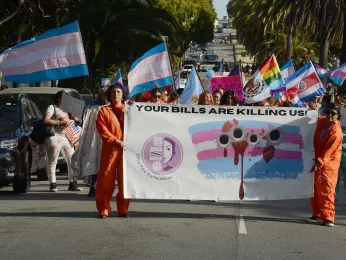
Trans March
Niko Storment, a queer, trans man who is the production manager of the Trans March, told the B.A.R. that that event will be taking place Friday, June 27, in the afternoon and evening.
“We have lots of different programming on that day, but basically there will be a stage at Dolores Park starting at 3 p.m. and marching at 6 p.m.,” Stroment said.
The march will proceed from Dolores Park to the intersection of Turk and Taylor streets in the city’s Tenderloin district where, in 1966, on a date lost to history, the Compton’s Cafeteria riot set off the first recorded act of militant queer resistance in U.S. history. The riot, three years before the more publicized Stonewall uprising in Manhattan, was led by trans and gender-nonconforming people.
The site at 111 Taylor Street is now used as a halfway house for formerly incarcerated people as they attempt to restart their civilian lives. As the B.A.R. previously reported, it has attracted the ire of LGBTQ advocates, who want to “liberate it” and repurpose it in a community-focused way that centers the trans experience. The property is owned by a subsidy of GEO Group Inc.
The city’s Board of Appeals is expected to hear a request over the property’s zoning July 16. Advocates of evicting the company with the ComptonsxCoalition are planning a mass mobilization at the Trans March, according to a news release.
“We refuse to let San Francisco be a staging ground for incarceration disguised as ‘reentry’ or ‘alternatives,’” stated coalition member Gemma Girón, a Latina transgender woman, migrant, and activist.
Additionally, attendees are expected to protest the June 18 Supreme Court decision in U.S. v Skrmetti, in which the court ruled 6-3 that Tennessee can ban gender-affirming care for trans youth. The decision has implications for the numerous other states that have enacted similar bans.
Storment said the stage will feature “some speakers that are really going to be exciting,” and a performance from trans Tanzanian Afropop musician Frankie Maston.
“My soul longs to be in community with my siblings, now more than ever before–in a space where we can channel healing, embody joy, and let music and dance move us together in one rhythm," Maston stated. “I am excited for Trans March.”
At the same time there will also be a resource fair in the park “so if people want to find ways to get gender-affirming care, to get therapy, that’s a good time to do that,” Storment said.
Storment said the focus of the march is showcasing and affirming the beauty and resilience of the trans community.
“I think as the Trans March, our goal has always been not to get bogged down in negativity and the traumatic things happening in the media and politics,” Storment said. “We want to set an example of how to lead with love, and set people up with resources to help people weather this storm, and show what it looks like to be a transgender community supporting each other.”
Bustin’ Out, the official Trans March afterparty, will be held at the El Rio bar, at 3158 Mission Street, from 6 p.m. June 27 to 2 a.m. June 28. Tickets are available online and proceeds benefit the TGI Justice Project.
